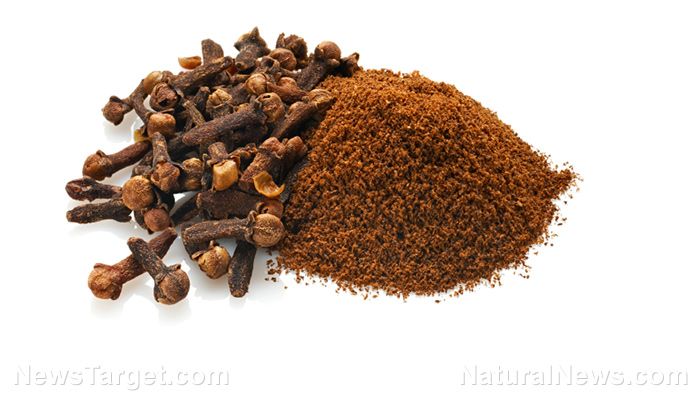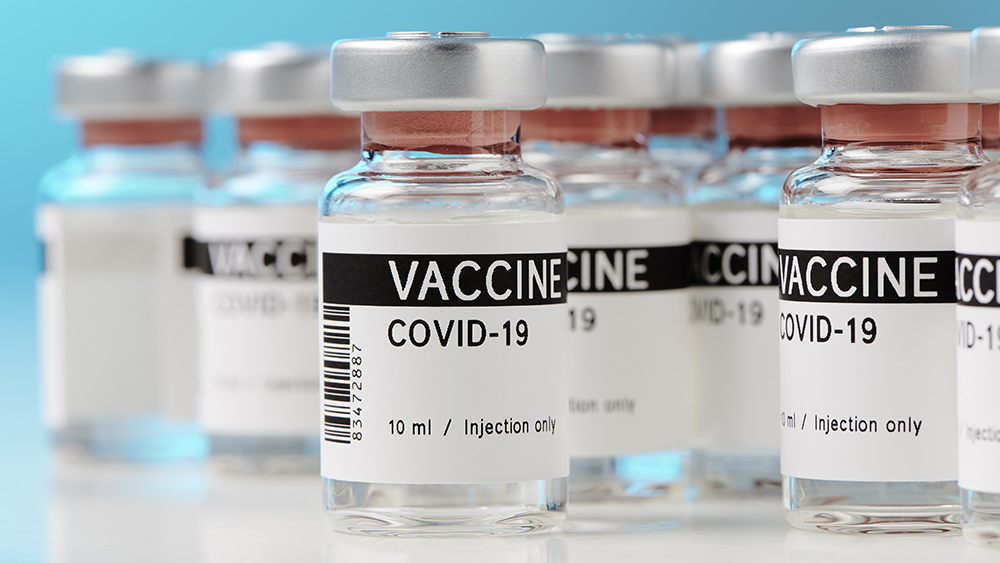Maqui berries and cloves can control excessive blood sugar spikes
05/23/2018 / By Janine Acero

It’s normal for blood sugar (glucose) levels to increase after a hearty meal. This triggers the release of insulin, a type of hormone that helps your body convert glucose into energy. However, excessive and repeated increase of glucose, called blood sugar spikes, can be potentially life-threatening.
Now studies support the ability of extracts from two natural ingredients – maqui berries (Aristotelia chilensis) and cloves (Syzygium aromaticum) – to reduce damaging blood sugar spikes without adverse side effects.
Maqui berry and cloves combined reduce blood sugar spikes, regulate production of insulin
In a study published in Panminerva Medicine, participants who were experiencing after-meal blood sugar spikes were divided into two groups. One group was given 200 mg of maqui berry extract, while the other group had a placebo. They were then served a meal that induced a sugar spike.
An hour after the groups’ meals, the researchers found that the post-prandial glucose levels in the maqui berry group only increased to 98 mg/dL (milligrams per deciliter), while the placebo group raised their glucose levels to 115 mg/dL. Moreover, the placebo group’s peak glucose levels occurred just one hour after the meal, whereas the maqui berry group took two hours, and only rose to 107 mg/dL.
The maqui berry group also had slower insulin production after an hour; only 11.22 ?mol/ml (micromoles per milliliter), while the placebo group’s insulin levels shot up to 25.33 ?mol/ml, which is 56 percent higher.
In addition, the researchers found that 180 mg/day of maqui berry extract for 90 days lowered hemoglobin A1c, a measurement of glucose levels over several months. (Related: Studies show that maqui berries are rich in antioxidants and anthocyanins.)
A separate study found that cloves, which are commonly used as an aromatic spice, can also lower blood glucose levels by blocking the action of glycogen phosphorylase, which releases glucose from the liver and muscles.
The researchers from the double-blind, placebo-controlled study examined the effect of cloves extract on two groups of participants – one with normal blood glucose levels and one with elevated levels – who were then given 250 mg of clove extract every day for 30 days.
Both groups showed lower post-prandial glucose levels after 12 days, and by the end of the study, their after-meal blood glucose were the same levels as before the participants had eaten.
More importantly, the researchers found that the cloves lowered blood glucose without causing a sudden drop to dangerously low levels the way some pharmaceutical drugs are known to do.
A vicious cycle
Repeated and excessive increase in blood sugar levels poses short-term effects such as impaired concentration and altered mood, while long-term effects range from cardiovascular disease and kidney disease to cancer.
Increasing age partnered with a sedentary lifestyle and diets that are high in sugar and carbohydrates effectively trigger the production of more insulin in the body, which eventually leads to insulin resistance.
With insulin resistance, the hormone no longer works to regulate blood sugar, which causes it to rise again, and this in turn only spurs the release of still more insulin to manage the glucose.
This “vicious cycle” creates high amounts of insulin in the bloodstream, a condition known as hyperinsulinemia which can lead to debilitating conditions such as Type 2 diabetes, weight gain, high blood pressure and chronic inflammation. It can also cause atherosclerosis (plaque buildup in the arteries), excessive fats in the blood and non-alcoholic fatty liver disease.
Hyperinsulinemia more than doubles the risk of breast cancer and raises the risk of stomach cancer by 100 percent, risk of colon cancer by 42 percent, and endometrial cancer by 45 percent.
Visit DiabetesScienceNews.com for the latest updates on diabetes research.
Sources include:
Submit a correction >>
Tagged Under:
alternative medicine, blood glucose, blood sugar, blood sugar spikes, Cloves, diabetes, diabetes science, food, food science, insulin, insulin resistance, maqui berries, natural cures, natural ingredients, natural remedies, plant extracts, research, Type 2 Diabetes, wineberries
This article may contain statements that reflect the opinion of the author
RECENT NEWS & ARTICLES
COPYRIGHT © 2017 RESEARCH NEWS





















